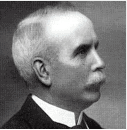It is with huge embarrassment that I offer advice on how to Blog. Blogging is not an elitist thing; there is no right or wrong way of doing it. As you can legitimately blog to yourself in private with ‘Dear Diary’ confessions, blogs do not even need to be entertaining or informative.
I’ve been writing about IT on and off since around 1980. The only qualification I can therefore offer to underpin my advice is that I’ve been doing it a long time. Blogging? Well, in a sense; the short paragraph, the review, the commentary: it is all the same art. A blog is really nothing more than another way of publishing words. I’ve been doing genuine blogging for a long time, though not always about IT. The special, exciting, thing about a blog is that you get feedback: if people do, or don’t, like what you write, then you soon hear about it. In that way, it is more like writing for the stage, which I’ve also done.
If you are confident that you have a good technique worked out for Blogging then please read no further. My only mission here is to help anyone who is short of ideas, or who are struggling to pick up an audience.
There is no real difference in the way you write a Blog that you want people to read voluntarily, and an article in a magazine, or a newspaper. There are a number of books that will tell you the secrets of writing short interesting articles (or blogs). I use, as a guide, books on how to write, written by people whose writing I admire, and read for pleasure: Yes, they really exist.
If you want to blog regularly, then keep a small notebook with you. (a real notebook, since computers are hopeless for this.) Whenever an idea occurs to you or you hear of an idea, write it down, one item per page. Then try talking to people about the idea. If there is a flicker of interest, read up as much as you can about the idea. It is important not to write anything other than notes in your notebook at this stage. Develop each idea gradually, picking up facts and opinions over a period of time. Note these down in the notebook. Use as many sources as possible, and don’t rely on the internet. Keep as many ideas as possible on the go at any one time. Keep them dead simple. This can give you a rather different attitude to misfortune. I can remember having a nasty accident whilst trying to construct a Greenhouse and thinking, as I got stitched together ‘Oh good, something I can blog about’.
If ideas don’t come, then take a list of topics and put them together at random. A famous author used to go to a copy of the bible, and get two quotations at random until something jelled. Just change the book, probably, to one that is relevant to the topic, and it will work for you. I would not suggest using the bible for a technical blog, but there are fascinating topics to be had from Books online. To illustrate the point, I just stabbed wildly at MSDN, and came up with ‘Cross Apply’ & ‘Computed column’ Hmm.. could there be a blog there? ‘Global cursors’ & ‘ fetching rows’. Hey, someone else is using this technique.
Some ideas will flower naturally into a blog or article. Others need forcing. To force an idea, write ‘Why? What? Who? How? Where? When? Which?’ down the page, and then try to answer all these questions. If the idea is good, this works every time. Once you have the components of your blog, change them about, re-sequence them and chop them until suddenly a good blog posting appears like magic. If this doesn’t work, scrap it. Be prepared to bin half your ideas.
When you have a rough Blog assembled, work on it. Take stuff out whenever you can. Using Twitter is a salutary reminder of the value of brevity. The great PG Wodehouse used the trick of sticking bits of paper with his work in progress, on the wall, at a height commensurate with his opinion of their quality. Only when work reached the ceiling did he send it to his publishers.
Apply a few rules
- Keep it simple. One idea only is the best.
- Don’t decide on the length of a blog until you’ve written it.
- Read the results out loud and edit what you’ve written until it sounds natural.
- Never use slang, unless it is a gimmick on the post.
- Do not leave out words in sentences, as this makes it hard for people who have English as a second language
- Rework the first paragraph until it is perfect. Otherwise, it is the only bit that will ever be read.
- Ask other people for help
- Never feel proud of what you’ve done. Everything can be improved, usually by shortening it.
- Get frank opinions from the sort of people who you’d want to read your Blog.
If you write naturally about your work and interests, and be led by your enthusiasms, then the results are generally going to be far more popular, and generate more interest. Readers are very quick to detect whether you are talking from sheer enthusiasm and exuberance. It will shine through.





Load comments